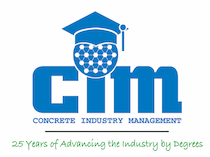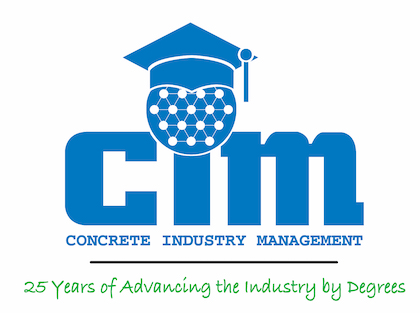CIM Faculty/Staff Member

Ryan Penlerick, Texas State University
School: Texas State University
What are your responsibilities at Texas State University?
In my role as CIM program director, I am responsible for the administration of the program, from student recruiting, retention and advising to coordinating curriculum changes and advancements with other CIM faculty members. I am also primarily responsible for industry outreach and engagement on behalf of our CIM program. As a professor of practice, I teach several courses per semester within the CIM curriculum.
Why should incoming students consider CIM as a major course of study?
What sets the CIM program apart from other degree programs? First, the concrete industry is not as niche or small as it might initially sound and the idea of specializing within a sector of the construction industry is something that should be looked upon favorably. Second, the industry support of this degree program provides students with opportunities that they won’t find with any other degree program. College scholarships, student travel to industry conferences, paid internships, work on cutting-edge research as an undergraduate student and the family culture among CIM students and faculty are all found in the CIM program.
Can you describe the different career paths that CIM graduates can take?
The career opportunities are as diverse as the students within the program. Our students have gone on to succeed in ready-mix and precast operations, concrete contracting, specialty contractors like shotcrete, aggregate and admixtures production and sales, and concrete pumping. And some have even gone on to be homebuilders. We even have an alumnus working as a technical senior project engineer in Taipei, Taiwan!
Why should companies in the concrete industry get involved in the CIM program?
There are many great reasons to be involved with the CIM program. With industry involvement, we have the opportunity to keep our curriculum modernized and relevant based on trends in the concrete and construction industry. Helping to make sure that the graduates of the program are well-versed in the construction industry, modern trends and advancements in technology only benefit the corporations who support the program.
What is your vision for the CIM program?
CIM is a model for specialization within the construction industry. As construction projects get more complex and more regulations are placed on the construction process, specialization in smaller sectors of the industry will become necessary. CIM students, alumni and the companies who employ them will find themselves on the forefront of a changing industry. The future is exceptionally bright for CIM programs!

